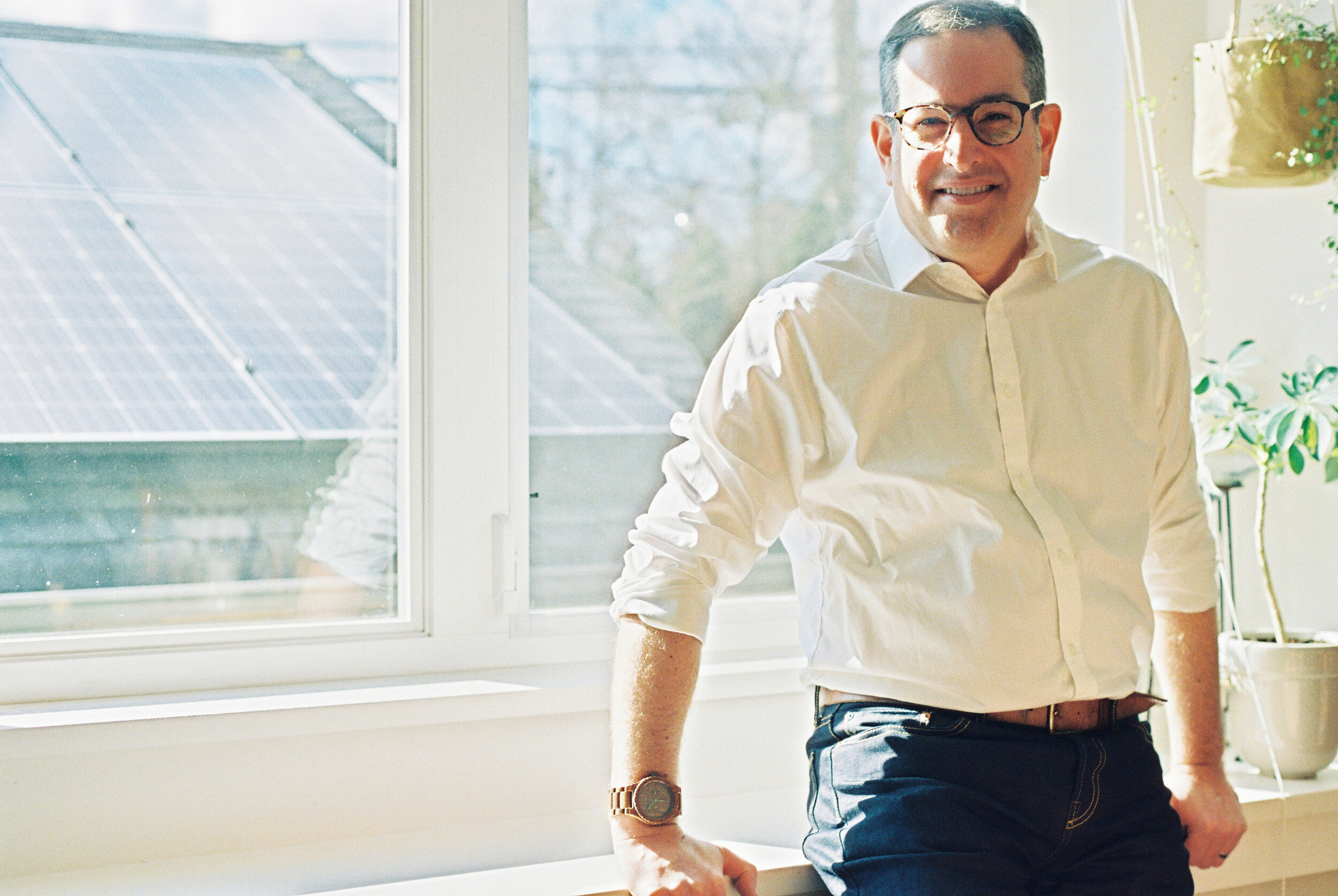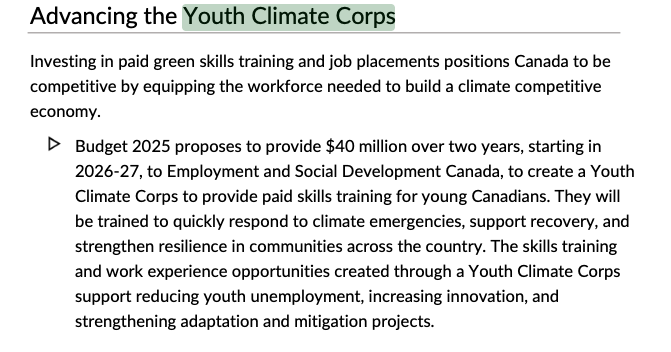Youth Climate Corps breaks into Federal Budget 2025
[The following piece was co-authored by Seth, Bushra Asghar and Juan Vargas Alba. It was originally published in Canada’s National Observer here.]
After many years of campaigning, the Youth Climate Corps has finally broken through, announced as a new public program in Federal Budget 2025.
The budget announced $40 million over two years for a Youth Climate Corps (YCC), starting the next fiscal year (which begins April 2026). For the hundreds of young activists and their allies (including many supportive members of Parliament) who have pressed hard for this idea, this news comes as a welcome relief and should be seen as a win, especially in the context of a budget that decreases overall program spending and represents a significant retreat on climate — an abdication of the larger fight of our lives.
What the budget states (notably not in the document’s thin climate section, but rather, in the “Tackling Affordability” section), is the following:
A victory lap would be tempting — multi-year campaigning is hard and relentless work — but some context is in order. While the government touts the budget as one of “generational investment” for young Canadians, at $20 million a year, the YCC will produce roughly 350 full-time jobs; meaning, about as many as would populate a typical elementary school, for the whole country. In other words, the initial program will not be terribly consequential for either tackling skyrocketing youth unemployment or addressing the climate emergency.
Given the initial level of funding, the program’s “results” (as the prime minister likes to emphasize) will be starkly at odds with the lofty language of the budget speech and its talk of transformational moments and “build, baby, build.” And the budget’s modest allocation for the YCC stands in dramatic contrast with the billions that will now pour into the military.
Moreover, once the government is ready to launch the YCC, they’re likely to face a program that doesn’t come close to meeting demand; our own campaigning and polling leads us to anticipate a program that will be immediately oversubscribed. Hopefully, expected demand will compel the government to expand the program in future fiscal plans.
So, good to take the win, but also not to overstate it. In the face of deepening wealth inequality, the rise of far-right movements and youth precarity, this is a youth-led movement win, demonstrating that concessions can be fought for and secured even during times of austerity. That said, this budget commitment falls $16 million short of the Liberal Party’s own platform pledge to young Canadians in Election 2025. And it is dramatically less than the $1 billion annual investment called for by the YCC campaign.
Hopefully, with this initial funding, provincial governments can be invited to come to the table with matching funding, so that the jobs created can quickly escalate.
The budget’s YCC pledge also speaks to jobs that respond to climate events, but not to jobs that will rapidly drive down emissions (although it does speak vaguely to “mitigation projects”), nor does it detail how this program will be structured or its guiding principles.
And so, the YCC movement will now work hard to hold the government to account, to ensure the YCC’s design and governance live up to the hopes and aspirations of those who have campaigned for this program.
Thankfully, it appears the government is not planning to merely contract out the program — cutting a cheque to a non-profit to administer it — but rather, the budget language suggests this will be a new public program. Similarly, the budget makes clear that the young people enrolled with the YCC will be paid (and not simply provided with volunteer positions).
A program that lives up to its transformative potential would be guided by the following principles:
Provides a pathway to long-term, well-paying careers in the net-zero economy;
Develops evidence-based programming in collaboration with industry, labour, youth, post-secondary and climate experts so youth are deployed on projects that maximize GHG reductions;
Centres the needs, knowledge and leadership of Indigenous Peoples and local communities;
Allocates resources with consideration of the needs of all Canada’s regions, in alignment with regional climate action priorities; and
Prioritizes equity for systematically marginalized populations and under-served communities.
And hopefully, the program will instill in its cohorts of young workers a sense of common purpose — an appreciation that, wherever they are employed and whatever YCC jobs they undertake, they are engaged in vital work in our collective defence. At scale, the YCC has the potential to secure long-term meaningful work for thousands of young people and introduce a whole new generation to unionized labour.
While a YCC necessarily involves many government ministries (and will need to work with all levels of government), this program will live with the Department of Employment and Social Development Canada (perhaps making the program’s longevity more likely), under Minister Patty Hajdu — who will hopefully bring the same spirit of emergency mobilization she showed as health minister in the early months of the COVID pandemic.
Ultimately, this budget announcement represents a foot in the door — a chance to prove the program’s worth and press for more ambition; a national program funded at $1 billion per year that grows with demand.
If the Carney government is serious about making generational investments, they will embrace the transformative potential of a fully-funded Youth Climate Corps, one that turns no young person away, and provides a good, green, unionized job to anyone who wants one. That is the “nation-building” mobilization that this moment requires.
We’re ready to roll up our sleeves and work with the government to implement the Youth Climate Corps — a public program that, if fully realized, matches the speed, scale and severity of the emergencies young people face with a bold and audacious counter-offer that signals the government’s commitment to intergenerational fairness, economic opportunity and climate action.
Seth Klein is team lead with the Climate Emergency Unit (which initiated the YCC campaign). Bushra Asghar and Juan Vargas Alba are the national co-leads of the YCC campaign

